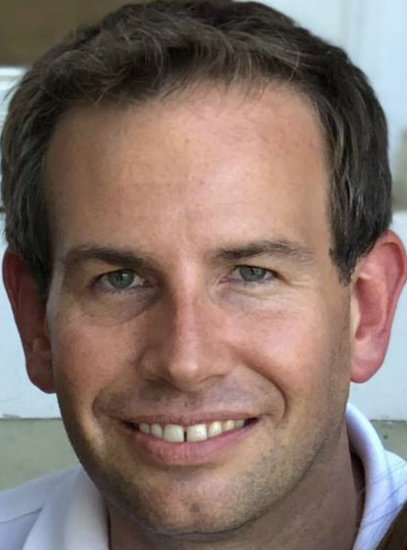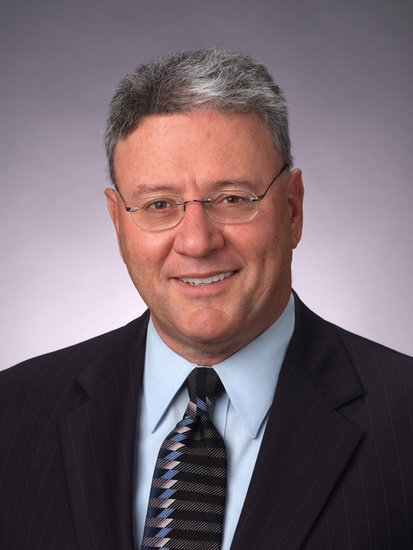Chesley challenges Bailey for town justice
GUILDERLAND — Long-time Guilderland justice, John W. Bailey, running on the Democratic, Conservative, Independence, and Working Families party lines, is being challenged by Stephen R. Chesley, running on the Republican and Green party lines.
Each was asked these questions:
— How will you handle conflicts of interest on the bench? In what kinds of cases would you consider recusing yourself?
— How will you work to ensure equality for people of all backgrounds in your courtroom?
— Please describe one instance in which you faced an ethical dilemma and how you resolved it.
— How do you deal with difficult people, including peers, lawyers, clients, or litigants?
— If you observed a defendant in your courtroom being poorly represented by an unprepared or ineffective lawyer, how would you handle the situation? What would you do if someone accused of a crime came to court without a lawyer?
— What is your general judicial philosophy?

Stephen R. Chesley
Attorney Stephen Chesley has been representing clients in town courts across the area and the state throughout his career, which means he would bring not just education, but experience, to the position of town justice, he said.
He works as in-house counsel to Amtrust Financial, he said.
Chesley attended New York University for his undergraduate degree and then graduated from New York Law School. He has experience in many of the issues a town justice needs to handle, he said, including criminal law, landlord-tenant issues, and small-claims cases.
He is enrolled in the Republican Party, and is running on that line as well as on the Green Party line.
He got the Green Party endorsement as a result of conversations he had with people while going door-to-door, campaigning. “My conversations with those individuals was enough to get their support, and petitions signed,” he said.
Chesley added, “I think I should appeal to members of all parties, not necessarily Republican or Democrat.” He wishes he had other small-party lines as well, he added.
He sees a conflict of interest as a case in which he has either a significant relationship with one of the parties, or some sort of involvement in the matter before him, Chesley said.
If his next-door neighbor were to come in to traffic court, with a deal already worked out with the prosecutor, he would not see that as a conflict of interest because he would not be making the decision.
But if that same neighbor comes in as a party to a matter in small-claims court, Chesley would probably recuse himself, he said, “because the other party might feel the cards are stacked against them or there is at least the appearance of a conflict of interest.”
He added, “People appearing in court must feel as though the judge is completely impartial.”
About treating equally all the people who would come before him in court, Chesley said, “I think somebody’s background is completely irrelevant.”
He added, “Justice is blind. That’s what we’re taught, and anyone who can’t put that into practice has no business being on the bench.”
As an example of an ethical dilemma, Chesley said he has had clients in the past who have not wanted him to divulge the truth. “And in those cases,” he said, “I’ve had to recuse myself as and withdraw as counsel.”
He added, “You cannot allow someone knowingly to go before a judge and push a narrative that isn’t true.”
Chesley spoke about how he deals with difficult people. He said the first step is to hear them out, without interruption. “I find with difficult people that interrupting them only makes the situation more difficult,” he said.
“After that, you can have a discussion or hear out the other party. At that point, the difficult person should understand that they’re prohibited from interrupting as well.”
“If you make sure they are heard,” Chesley said, “the hope, and what I’ve experienced in practice, is that difficult people are not as difficult as they otherwise might be.”
Everyone is entitled to representation, even if they can’t afford an attorney, Chesley said. Part of a judge’s role is to let defendants or litigants know that they have a right to counsel; he would always let people know that and allow them an adjournment so that they can find a lawyer.
Judges often announce in the courtroom that the public defender is available at the courtroom, and that anyone who does not have an attorney and cannot afford one should speak with the public defender before appearing, Chesley said.
If he were to feel that someone appearing before him in court was being inadequately or poorly represented by an attorney, he said, he would probably have a private conversation with the attorney. He would ask the attorney, he said, if he or she is prepared, and potentially give an adjournment, to allow the attorney to become prepared.
Especially in criminal court, he said, there are potentially harsh consequences from someone being poorly represented.
He would never tell a defendant that his or her attorney is not decent or adequate, he said, nor would have that conversation in front of a defendant.
Chesley’s judicial philosophy centers on impartiality, he said. Anyone who appears before him must feel that he or she is starting with a clean slate and that the facts are being looked at without any bias at all, he said.

John W. Bailey
John W. Bailey has been a practicing attorney for nearly 40 years and a town justice in Guilderland since 2004.
Most of his career has been spent in trial law, primarily in the civil arena, he said. He said his clients have been a mixture, “weighted a little bit more toward public entities or offices that get sued.” He represents litigants who are suing as well, and gave the example of two women who sued the state of New York for sexual harassment.
He is endorsed by the Democratic Party, the Conservative Party, the Independence Party, and the Working Families Party.
There are a specific set of rules that govern when a judge has a conflict of interest, Bailey said, offering the example, “If a sibling got a speeding ticket, I could not preside over that case.” The rules are that a judge cannot preside over a case involving any relative or client.
“Those are mandatory,” he said.
Other cases, in which a person is not a client but is someone the judge knows, “becomes a judgment call as to when you think you can be fair,” Bailey said.
If he were in that situation and believed he could be fair, he would disclose to both attorneys how he knows the person and let them know that he thinks he can be fair but will recuse himself if they would like him to.
He recused himself once from a small-claims matter involving an employee at town hall, he said. He had thought at the time, “There’s no way I can be fair in this case.”
About the question of how he would ensure fairness in his courtroom, Bailey said, “Well, I’ve been doing it for almost 16 years.”
He said, “I truly try as much as humanly possible to only factor into a case the facts of the case.” He added that he does not think he has ever had one complaint from anyone who thinks he has treated them differently because of their gender or their race “or any other factor.”
Asked to relate an ethical dilemma he had faced, Bailey said that the ones that come to mind involve the question of conflict of interest.
He said there was one case in which he actually knew something about the facts of the case and “just stepped away, easy for me.” He said that was the type of ethical dilemma that arises most often for judges.
When dealing with difficult people, Bailey said the first step is “a lot of patience.” He tends to be a very patient person, he said.
In justice court, people can sometimes be worked up, he said. “And you happen to be the one sitting there, and they’re going to vent it on you.”
He said that judges should accept a little of that and also try to get the person oriented to where they are, “maybe get them aware of where they are and the idea that F-bombs aren’t helping their case.”
Sometimes he might ask a defendant to have a seat so that he can recall them later. “By the second time, they might be very different,” he said.
If a person appears before him without a lawyer, “that’s easy,” he said. “You explain very clearly that you’re going to adjourn this case one, two, or three weeks, and emphasize very clearly how important it is to be represented by an attorney. You give them the information for the public defender’s office so if they cannot afford an attorney, they can apply for representation by that office.”
Bailey said he is currently faced with a case in which a man is insisting on representing himself; Bailey engaged him a long series of questions on his background, understanding, education, training, and his understanding of his rights. If Bailey is convinced of the man’s understanding of his rights, he can allow him to represent himself. “But I strongly advise against it,” he said.
He has had cases in his courtroom in which a defendant is not being represented well, he said. What he does in that case, he said, is to call a quick conference with the lawyers, and speak very directly to that lawyer. “I ask him or her, ‘How much criminal work have you done?’”
If Bailey is convinced that the attorney does not know the basics of how to represent someone on a particular charge, he will tell the lawyer that he is going to grant an adjournment so that the client can find a new lawyer.
“We have a group of public defenders who are some of the most talented lawyers I’ve met,” Bailey said. “And criminal defense lawyers who are committed and talented. That makes our job much easier, because you know when a client is being represented by a talented lawyer, their rights are being protected. So it’s not something we face very often in our court.”
Bailey said he does not have a philosophy, and that judges should not.
“I’m required to follow the law, including the law interpreted by appellate courts.” He is a “big fan,” he said, of the United States Constitution and the Bill of Rights, “but I think everyone should be.”


